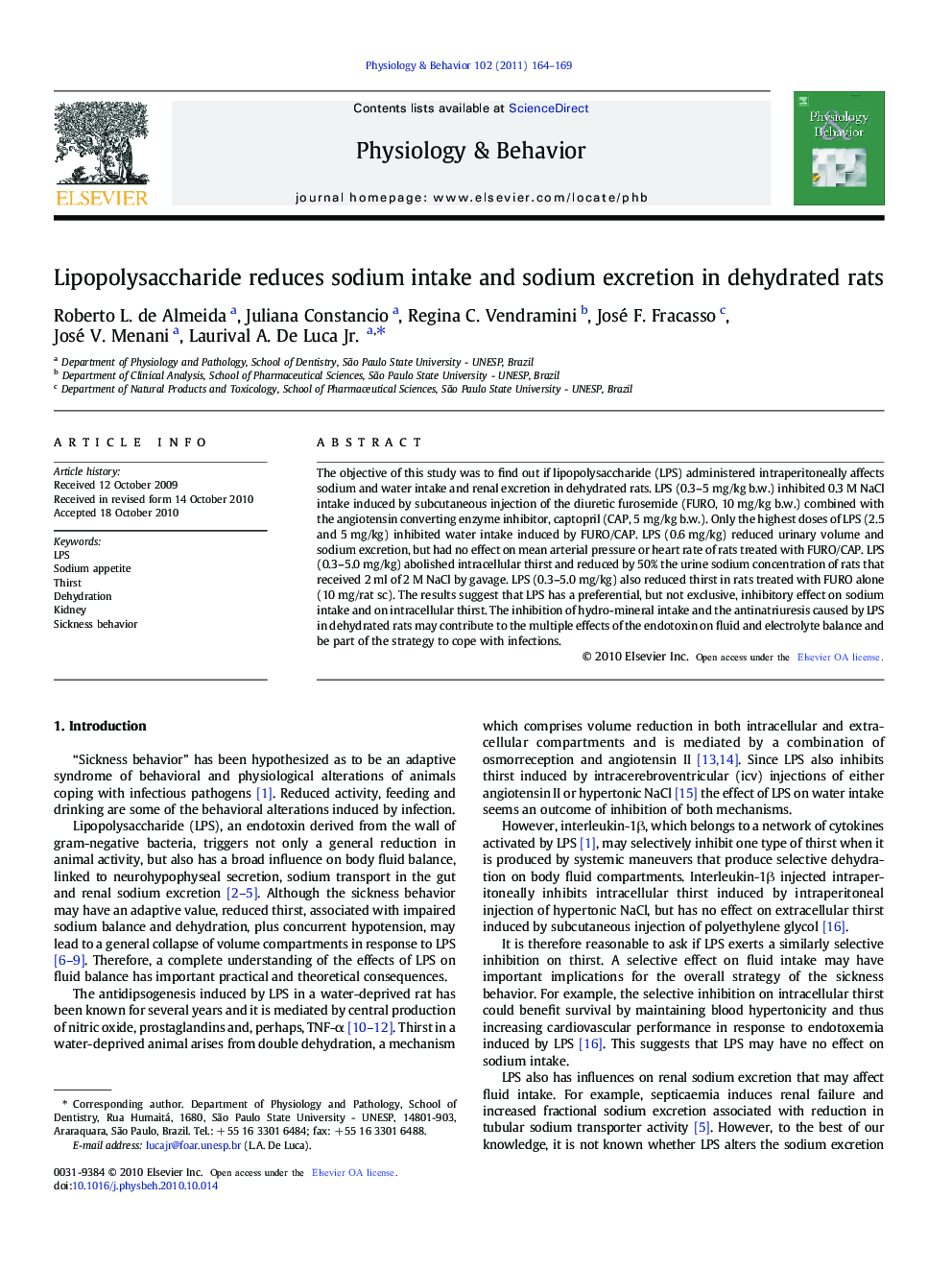| Article ID | Journal | Published Year | Pages | File Type |
|---|---|---|---|---|
| 5925714 | Physiology & Behavior | 2011 | 6 Pages |
The objective of this study was to find out if lipopolysaccharide (LPS) administered intraperitoneally affects sodium and water intake and renal excretion in dehydrated rats. LPS (0.3-5Â mg/kg b.w.) inhibited 0.3Â M NaCl intake induced by subcutaneous injection of the diuretic furosemide (FURO, 10Â mg/kg b.w.) combined with the angiotensin converting enzyme inhibitor, captopril (CAP, 5Â mg/kg b.w.). Only the highest doses of LPS (2.5 and 5Â mg/kg) inhibited water intake induced by FURO/CAP. LPS (0.6Â mg/kg) reduced urinary volume and sodium excretion, but had no effect on mean arterial pressure or heart rate of rats treated with FURO/CAP. LPS (0.3-5.0Â mg/kg) abolished intracellular thirst and reduced by 50% the urine sodium concentration of rats that received 2Â ml of 2Â M NaCl by gavage. LPS (0.3-5.0Â mg/kg) also reduced thirst in rats treated with FURO alone (10Â mg/rat sc). The results suggest that LPS has a preferential, but not exclusive, inhibitory effect on sodium intake and on intracellular thirst. The inhibition of hydro-mineral intake and the antinatriuresis caused by LPS in dehydrated rats may contribute to the multiple effects of the endotoxin on fluid and electrolyte balance and be part of the strategy to cope with infections.
Graphical AbstractDownload full-size imageResearch Highlights⺠LPS inhibited preferentially sodium intake and intracellular thirst ⺠LPS reduced urine sodium in dehydrated rats ⺠Reduced hydro-mineral intake and sodium excretion might compensate each other ⺠A possible adaptive response belonging to sickness behavior.
